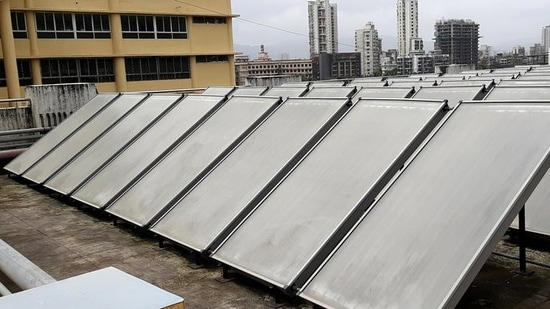
Making the Move to Solar: Key Considerations for Indian Consumers
With a growing emphasis on sustainability, an increasing number of Indian consumers are contemplating the switch to solar panels to power their homes or businesses. However, this transition requires careful planning and consideration of several essential factors to ensure a smooth and successful adoption.
- Assess Your Energy Needs: Before diving into solar panel installation, it’s crucial to assess your energy requirements accurately. Take stock of your current electricity consumption patterns, considering factors such as the size of your household or business, peak energy usage times, and any potential future expansion plans. This assessment will help determine the appropriate size and capacity of the solar panel system needed to meet your energy needs effectively.
- Evaluate Roof Suitability: The feasibility of installing solar panels hinges on the suitability of your roof. Assess various factors such as the orientation, angle, and shading of your roof to gauge its solar potential. Ideally, roofs that receive ample sunlight throughout the day with minimal shading are best suited for solar panel installation. Additionally, consider the structural integrity of your roof to ensure it can support the weight of solar panels and withstand environmental elements such as wind and rain.
- Understand Financial Considerations: While the initial investment in solar panels may seem daunting, it’s essential to consider the long-term financial benefits. Explore available incentives, rebates, and financing options offered by government agencies or financial institutions to make the transition to solar energy more affordable. Additionally, factor in potential savings on electricity bills over the system’s lifespan to gauge the return on investment.
- Research Quality and Reliability: When selecting solar panels and associated equipment, prioritize quality and reliability over cost. Conduct thorough research on reputable solar panel manufacturers and installation providers, considering factors such as product warranties, customer reviews, and industry certifications. Investing in high-quality components ensures optimal performance and durability of your solar panel system.
- Consider Maintenance and Upkeep: While solar panels require minimal maintenance compared to traditional energy sources, it’s essential to factor in ongoing upkeep requirements. Familiarize yourself with recommended maintenance practices, such as periodic cleaning and inspection, to ensure the efficient operation of your solar panel system. Additionally, inquire about warranty coverage and available support services from your installation provider to address any potential issues promptly.
- Explore Grid Connection and Storage Options: Determine whether you prefer to remain connected to the grid or opt for off-grid solar solutions with battery storage. Grid-connected systems allow you to feed excess energy back into the grid for credits or compensation, providing added flexibility and reliability. Conversely, off-grid systems with battery storage offer greater energy independence and resilience, particularly in areas with unreliable grid infrastructure.
By carefully considering these essential factors and conducting thorough research, Indian consumers can confidently navigate the transition to solar energy, reaping the numerous environmental and financial benefits it offers.



Leave a Reply